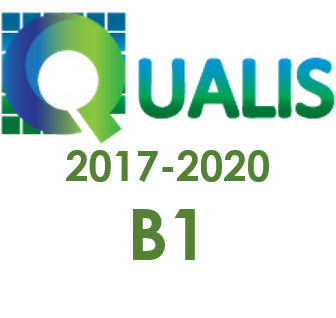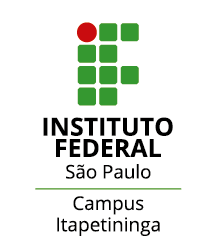The impact of motivation towards science learning, gender, and academic background in secondary education, on the asking of research questions
Keywords:
Secondary school, Science education, Asking of research questions, Motivation towards science learningAbstract
Scientific inquiry competencies are fundamental to the scientific literacy of citizens. One of these competencies, the asking of research questions, is the starting point of scientific inquiry processes. For this reason, the objectives of this study focused on the evaluation of the research question asking ability of secondary school students and on the analysis of the influence of gender, grade level and motivation towards science learning on this ability. A total of 167 students of Spanish secondary education (8th, 9th and 10th grade, between 13 and 16 years old) participated. Two instruments, one to determine their ability to ask research questions, and the other to measure their motivation to learn science, were administered to participants. From an analysis of the correlations between variables and a regression analysis, it can be concluded that: a) the students' ability to ask research questions is low; and b) only the grade level of the students has a significant influence on this ability.
Downloads
References
Arandia Aldalur, E., Zuza Elosegi, K., & Guisasola Aranzabal, J. (2016). Actitudes y motivaciones de los estudiantes de ciencias en Bachillerato y Universidad hacia el aprendizaje de la Física. Revista Eureka sobre Enseñanza y Divulgación de las Ciencias, 13(3), 558-573. Recuperado de: http://hdl.handle.net/10498/18497
Bielik, T., & Yarden, A. (2016). Promoting the asking of research questions in a high-school biotechnology inquiry-oriented program. International Journal of STEM Education, 3(1), 1-13. https://doi.org/10.1186/s40594-016-0048-x
Cavas, P. (2011). Factors affecting the motivation of Turkish primary students for science learning. Science Education International, 22(1), 31-42. Recuperado de: https://files.eric.ed.gov/fulltext/EJ941653.pdf
Chi, S., Wang, Z., & Liu, X. (2019). Investigating disciplinary context effect on student scientific inquiry competence. International Journal of Science Education, 41(18), 2736-2764. https://doi.org/10.1080/09500693.2019.1697837
Chin, C. (2002). Student-generated questions: Encouraging inquisitive minds in learning science. Teaching and Learning, 23(1), 59-67. Recuperado de http://hdl.handle.net/10497/292
Chin, C., & Kayalvizhi, G. (2002). Posing problems for open investigations: What questions do pupils ask? Research in Science & Technological Education, 20(2), 269–287. https://doi.org/10.1080/0263514022000030499
Chin, C., & Osborne, J. (2008). Students' questions: a potential resource for teaching and learning science. Studies in Science Education, 44(1), 1-39. https://doi.org/10.1080/03057260701828101
Chinn, C. A., & Malhotra, B. A. (2002). Epistemologically authentic inquiry in schools: a theoretical framework for evaluating inquiry tasks. Science Education, 86, 175–218. https://doi.org/10.1002/sce.10001
Dillon, J.T. (1988). Questioning in science. In M. Meyer (Ed.), Questions and Questioning (pp. 68-80). Berlin: Walter de Gruyter
Ergül, R., Şımşeklı, Y., Çaliş, S., Özdılek, Z., Göçmençelebı, Ş., & Şanli, M. (2011). The effect of inquiry-based science teaching on elementary school students’ science process skills and science attitudes. Bulgarian Journal of Science and Education Policy (BJSEP), 5(1), 48-68. Recuperado de http://bjsep.org/getfile.php?id=88
Fraser, B. J. (2012). Classroom learning environments: Retrospect, context and prospect. In B. J. Fraser, K. G. Tobin, & C. J. McRobbie (Eds.), The second international handbook of science education. New York: Springer.
Germann, P. J., Aram, R., Odom, A. L., & Burke, G. (1996). Student performance on asking questions, identifying variables, and formulating hypotheses. School Science and Mathematics, 96(4), 192-201. https://doi.org/10.1111/j.1949-8594.1996.tb10224.x
Gormally, C., Brickman, P., & Lutz, M. (2012). Developing a test of scientific literacy skills (TOSLS): Measuring undergraduates’ evaluation of scientific information and arguments. CBE—Life Sciences Education, 11(4), 364-377. https://doi.org/10.1187/cbe.12-03-0026
Graesser, A. C., & Black, J. B. (Eds.). (2017). The psychology of questions. Londres: Routledge.
Güvercin, Ö., Tekkaya, C., & Sungur, S. (2010). A cross age study of elementary students’ motivation towards science learning. Hacettepe Üniversitesi Eğitim Fakültesi Dergisi, 39(39), 233-243. Recuperado de https://dergipark.org.tr/en/pub/hunefd/issue/7799/102178
Hasson, E., & Yarden, A. (2012). Separating the research question from the laboratory techniques: Advancing high‐school biology teachers' ability to ask research questions. Journal of Research in Science Teaching, 49(10), 1296-1320. https://doi.org/10.1002/tea.21058
Hofstein, A., Navon, O., Kipnis, M., & Mamlok‐Naaman, R. (2005). Developing students' ability to ask more and better questions resulting from inquiry‐type chemistry laboratories. Journal of Research in Science Teaching, 42(7), 791-806. https://doi.org/10.1002/tea.20072
Innatesari, D. K., Sajidan, S., & Sukarmin, S. (2019). Middle School Students’ Mastery of Scientific Inquiry Literacy based on Gender and School Location. Journal of Physics: Conference Series, 1241(1), 012046. https://doi.org/10.1088/1742-6596/1241/1/012046
Kremer, K., Specht, C., Urhahne, D., & Mayer, J. (2014). The relationship in biology between the nature of science and scientific inquiry. Journal of Biological Education, 48(1), 1-8. https://doi.org/10.1080/00219266.2013.788541
Lederman, N. G., Lederman, J. S., & Antink, A. (2013). Nature of science and scientific inquiry as contexts for the learning of science and achievement of scientific literacy. International Journal of Education in Mathematics, Science and Technology, 1(3). Recuperado de https://www.ijemst.net/index.php/ijemst/article/view/19
Nehring, A., Nowak, K. H., Zu Belzen, A. U., & Tiemann, R. (2015). Predicting students’ skills in the context of scientific inquiry with cognitive, motivational, and sociodemographic variables. International Journal of Science Education, 37(9), 1343-1363. https://doi.org/10.1080/09500693.2015.1035358
Organisation for Economic Co-operation and Development (OECD). (2013). PISA 2015 draft science framework. Paris, France: OECD. Recuperado de https://www.oecd.org/pisa/pisaproducts/Draft%20PISA%202015%20Science%20Framework%20.pdf
Otero, J. (2009). Question generation and anomaly detection in texts. In D. J. Hacker, J. Dunlosky, & A. C. Graesser (Eds.), The educational psychology series. Handbook of metacognition in education (p. 47–59). New York: Routledge/Taylor & Francis Group.
Pajares, F. (2001). Toward a positive psychology of academic motivation. The Journal of Educational Research, 95, 27–35. https://doi.org/10.1080/00220670109598780
Phillips, A. M., Watkins, J., & Hammer, D. (2018). Beyond “asking questions”: Problematizing as a disciplinary activity. Journal of Research in Science Teaching, 55(7), 982-998. https://doi.org/10.1002/tea.21477
Rodríguez, J., Solaz-Portolés, J. J., & Sanjosé, V. (2021). Efectos de la formación académica y del género sobre las destrezas de razonamiento científico de los estudiantes de secundaria: un estudio piloto. Espacios en blanco. Revista de Educación. Aceptado para su publicación
Scogin, S. C., & Stuessy, C. L. (2015). Encouraging greater student inquiry engagement in science through motivational support by online scientist‐mentors. Science Education, 99(2), 312-349. https://doi.org/10.1002/sce.21145
Shin, S., Lee, J. K., & Ha, M. (2017). Influence of career motivation on science learning in Korean high-school students. Eurasia Journal of Mathematics, Science and Technology Education, 13(5), 1517-1538. https://doi.org/10.12973/eurasia.2017.00683a
Torres, T., Milicic, B., Soto, C., & Sanjosé, V. (2013). Generating Students’ Information Seeking Questions in the Scholar Lab: What Benefits Can We Expect From Inquiry Teaching Approaches? Eurasia Journal of Mathematics, Science and Technology Education, 9(3), 259-272. https://doi.org/10.12973/eurasia.2013.934a
Tuan, H. L., Chin, C. C., & Shieh, S. H. (2005). The development of a questionnaire to measure students' motivation towards science learning. International Journal of Science Education, 27(6), 639-654. https://doi.org/10.1080/0950069042000323737
Velayutham, S., & Aldridge, J. M. (2013). Influence of psychosocial classroom environment on students’ motivation and self-regulation in science learning: A structural equation modeling approach. Research in Science Education, 43(2), 507-527. http://dx.doi.org/10.1007/s11165-011-9273-y
Velayutham, S., Aldridge, J. M., & Fraser, B. (2012). Gender differences in student motivation and self-regulation in science learning: A multi-group structural equation modeling analysis. International Journal of Science and Mathematics Education, 10(6), 1347-1368. https://doi.org/10.1007/s10763-012-9339-y
Wen, C. T., Liu, C. C., Chang, H. Y., Chang, C. J., Chang, M. H., Chiang, S. H. F., ... & Hwang, F. K. (2020). Students’ guided inquiry with simulation and its relation to school science achievement and scientific literacy. Computers & Education, 149, 103830. https://doi.org/10.1016/j.compedu.2020.103830
Widowati, A., Widodo, E., & Anjarsari, P. (2017, November). The Development of Scientific Literacy through Nature of Science (NoS) within Inquiry Based Learning Approach. Journal of Physics: Conference Series, 909(1), 012067. https://doi.org/10.1088/1742-6596/909/1/012067
Yang, K. K., Lin, S. F., Hong, Z. R., & Lin, H. S. (2016). Exploring the assessment of and relationship between elementary students’ scientific creativity and science inquiry. Creativity Research Journal, 28(1), 16–23. https://doi.org/10.1080/10400419.2016.1125270
Yoon, C. H. (2009). Self-regulated learning and instructional factors in the scientific inquiry of scientifically gifted Korean middle school students. Gifted Child Quarterly, 53(3), 203-216. https://doi.org/10.1177/0016986209334961
Downloads
Published
How to Cite
Issue
Section
License
Copyright (c) 2021 Revista Internacional de Pesquisa em Didática das Ciências e Matemática

This work is licensed under a Creative Commons Attribution-NonCommercial-ShareAlike 4.0 International License.




